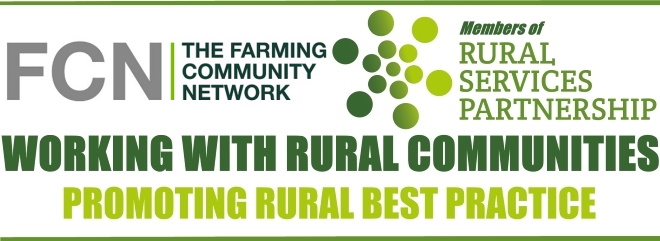T: 01822 851370 E: [email protected]
Visit RSN Survey about life in rural England to find out more.
It’s time to talk about mental health

For most people within the farming community, it is far from an easy conversation to have. But with more than one member of the farming community dying by suicide every week, mental health is a subject that can no longer be avoided.
Despite a greater awareness of mental health within the industry, the sad truth is that more than one farmer a week takes their own life in the UK. In wider society, it is thought that any one suicide has a significant impact on eight other people. Within farming, because of the close-knit nature of our working and social lives, the impact is far wider reaching, devastating whole communities.
Thankfully the topic of mental health does not carry the stigma that it once did in the farming community. As more awareness is raised about the subject, the “stiff upper lip” mentality that has been entrenched in farming for generations is slowly diminishing and people are beginning to open up and talk about how they are really feeling. But the fact that the numbers of those taking their own life are not decreasing shows that much more needs to be done to tackle this issue.
Farmers have to overcome multiple issues on a daily basis, some of which are beyond control: fluctuating market prices, animal disease, the weather, lack of fodder, the potential impact of Brexit and rural crime to name but a few. Combine these stressors with the isolation and the pressure to make the farm business a success, it is hardly surprising that so many within the farming community struggle with poor mental health – and why some see no alternative than to end their own life.
When it comes to farming, it is very easy to underestimate just how important the mind is. Along with the body, it is, without doubt, the most important bit of kit a farmer can have. If the mind is not well maintained, the consequences can be disastrous – not just to the farmer, but to the farm business and the farm household too.
There are several signals which, if seen on a prolonged basis, may indicate poor mental health that all within the farming community should look out for. These include:
- Eating more or less than normal
- Mood swings
- Lack of concentration
- Poor physical health
- Feeling tense
- Feeling useless
- Feeling worried or nervous
- Poor sleep
- Fatigue
- Forgetfulness
Poor mental health can also lead to physical symptoms such as:
- Back pain
- Indigestion
- Irritable bowel syndrome
- Psoriasis
- Migraine
- Tension headaches
Identifying these signals, both in yourself and those around you, is an essential first step in getting the help you need.
If you have identified any of these signals and they are not normal behaviour, the next step is to talk to someone. You can talk to your friends and family, other farmers, your neighbour or your GP. Or if you are worried about talking to those closest to you, for fear of becoming a burden, you can talk to FCN. Our confidential national helpline is open every day of the year from 7am-11pm and the majority of our volunteers are from a farming background and therefore have a great understanding of the issues farmers regularly face. FCN’s volunteers can help farmers find the support they need and “walk with them” on their journey to a more positive place in their lives.



